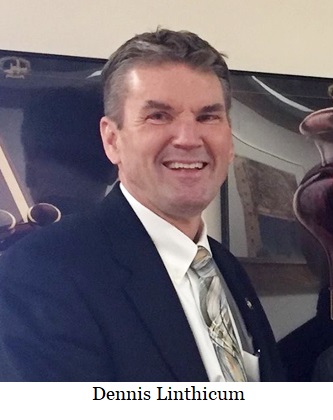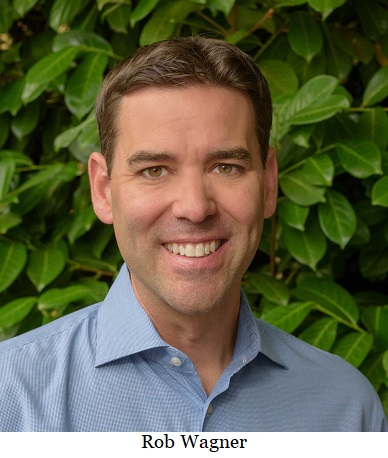
On this day, August 29, 1984, Oregon members of the Bhagwan Shree Rajneesh cult sprinkled salmonella bacteria on salad bar ingredients in local restaurants. Over 750 people were sickened.
Also on this day, August 29, 2020, a man was fatally shot as a caravan of Mr. Trump's supporters drove through Portland for a pro-Trump rally and clashed with counter protesters. Trump supporter, Aaron "Jay" Danielson, was shot and killed after he came downtown. On August 30, antifa supporter Michael Forest Reinoehl, the suspected shooter of Danielson, was shot and killed near Lacey, Wa., by law enforcement agents.
 Post an Event
Post an Event
| Benton County Republicans’ Private Fundraising Event, “Bent-on Boots and Bling” with Trey Taylor |
| Friday, September 5, 2025 at 5:00 pm |
| Featuring Trey Taylor
Music Private Event
Friday, September 5, 2025 5:00-5:30 pm VIP Reception
5:30-8:00 pm Heavy Appetizers,
Auction, Concert
Red: $750 VIP Reception
Front Row Table Sponsor
White: $500 Table Sponsor
Blue: $50 per person
Limited Seating. Get Yours Now!!!
Support Local
Dress up: Bling, Cowboy, Patriotic Benton County Republican
FUNDRAISER
www.BentonGOP.org
Get your tickets today at:
https://www.bentongop.org/event-details/benton-county-republicans-fundraiser/form
About Trey:
Trey is the youngest African American Man in Country Music History. The Denver Post wrote
"It's impossible to miss his enthusiasm. With a fondness for cowboy boots, gaudy colors and dazzling jewelry, Trey Taylor could stand toe to toe with any of the Pop, Country or even Rap
contemporaries of his generation.“ |
| Trysting Tree Golf Club, 34028 NE Electric Rd., Corvallis |
Oregon’s use of QALY criticized by U.S. Health and Human Services
Remember the 2008 campaign for President when Sarah Palin was made fun of for speaking out about death panels? She was referring to the Medicaid qualification guidelines. In 1992, Oregon submitted a Medicaid waiver application relying on a Quality-Adjusted Life-Year (QALY) formula to prioritize coverage and services for those whose lives were deemed of “higher value.”
In 2011,
HB 2100 passed as a pharmacy bill that also establish the Health Evidence Review Commission (HERC) to develop clinical practice guidelines in its prioritized list of services to encourage effective and efficient medical evaluation and treatment. They were directed to report to the Oregon Health Authority to prioritize health services for the Oregon Health Plan (OHP). It called for HERC to develop a medical technology assessment process opening the door to use QALY in the Oregon Health Plan.
The purpose of HERC was to establish benchmark rates to achieve the goal that Oregonians have access to high quality, effective health care at an affordable cost, whether that care is purchased by the state or by the private sector. The bill seemed innocent enough that it passed unanimously seemingly unaware they were creating the foundation for "death panels." It was also the narrative used as the foundation for Measure 111 in 2022 when voters passed universal health care not realizing they were opening a permanent door for priority rating – the same year the Legislature gave free healthcare to anyone in the world who comes to Oregon.
Oregon has used a QALY formula over the last 22 years to determine what would and would not be covered by the Oregon Health Plan. Even the U.S. Department of Health and Human Services thinks it is a flawed scoring system used by economists to determine cost-effectiveness of proposed medical treatments. Healthcare payers use the scores to determine who is eligible for healthcare resources, similar to auto insurers using credit scores for issuing coverage.
Based on clinical and practical analyses, QALY calculations measure how much a proposed treatment may improve someone’s quality of life
by arbitrarily weighing how long that person has spent in different states of health.
The formula uses a year of “perfect health” as worth 1, while a year of “less than perfect” health—such as living with a disability or chronic illness—is worth less than 1. Death equals zero. The final QALY score equals the number of years a treatment may extend a patient’s life multiplied by determined quality of life.
In 2017, Oregon removed an explicit reference to QALY from its cost-effectiveness framework—but the Health Evidence Review Commission, which guides the Oregon Health Plan’s benefit decisions, continues to rely upon QALY-driven prioritization scores.
Disability Rights Oregon (DRO) has been working to get the Oregon Health Authority to stop using QALY scores since the inception of the Oregon Health Plan, with no success. They testified that QALY expands existing healthcare inequities by perversely impacting or denying care to people with chronic disease or disabilities, and older adults. Because of the greater value QALY places on medical treatments that extend the lives of people without disabilities than on those that benefit people with disabilities, these groups are deemed “less worthy” to receive insurance coverage for new medicines or treatments. The illegalities of QALY use are well documented, and The National Council on Disability has repeatedly warned it undermines and violates major U.S. disability and civil rights laws—including the Rehabilitation Act and the Americans with Disabilities Act.
Senate Bill 1508 is the first step in limiting the use of QALY by the Oregon Health Authority. It states, the authority may not consider a quality of life in general measure, either directly or by considering a source that relies on a quality of life in general measure. It also requires the Health Evidence Review Commission to not rely upon any quality of life in general measures, either directly or by considering research or analysis that relies on a quality of life in general measure including value of a service; they must receive public comment on selection of vendor that provides research or analysis tool; and allow comments on the research or health economic measures to be relied upon in the commission’s decision-making.
A D V E R T I S E M E N T

A D V E R T I S E M E N T
Has the “death panels” run its course for such a change in how to cut medical costs? Factor in the passing of universal health care and free medical care for an increasing number of unhealthy immigrants, affirming care transitioning mistakes, and increased suicides. QALY may no longer serve their agenda. Plus, the U.S. Department of Health and Human Services criticized Oregon’s use of QALY because it ‘‘in substantial part values the life of an individual with a disability less than the life of an individual without a disability. This premise is discriminatory and inconsistent with the Americans with Disabilities Act.”
But, SB 1508 isn’t without tradeoffs. Senator Dennis Linthicum (R-Klamath Falls) points out that the bill also caps insulin at $35 a vial from insurance providers, which has the effect of squeezing other plan participants to meet the difference in cost that directly helps patients but doesn't solve the problem of the high cost. In other words, we only moved the problem from one spot on the map to another, as manufacturers enjoy continued market protection.
One thing that seems to be agreed upon is that QALY types of scores have no place influencing what conditions and treatments the Oregon
Health Plan will cover. SB 1508 is headed to the House floor for its final vote.
--Donna Bleiler| Post Date: 2024-02-22 10:26:51 | Last Update: 2024-02-22 16:02:38 |
Proposed legislation mirrors school choice initiatives
Oregon Representative Ed Diehl(R-Scio) is chief sponsor on a school choice bill that nearly mirrors the School Choice Initiative, scheduled for a hearing on February 14.
HB 4161 is described to reduce the cap on students who can attend a virtual public charter school and requires a school district to allow a student from another district to attend a school in the school district with limitations. The bill also provides for a student to have an education savings account allowing a percentage of funds to follow the student.
Compared to
IP5's Open Enrollment Amendment, and
IP6's School Choice Account, the functions are similar with different terminology. What this bill adds to the initiatives is common sense to the implementation of those initiatives. IP5 refers to “attendance zone” meaning the specific school boundaries the school district has designated as the school of residence based on the resident of the parents. IP5 seems to start with the premise that no student has an assigned school and all students/parents go through the “choice” process. HB 4161 starts with the premise that a student’s place of resident is the assigned school, and parents have a choice option to transfer.
IP5 under 4.a. requires schools to give first priority to students living within their school boundaries (attendance zone)implying everyone goes through the choice process. Second priority goes to students living within the school district, and all others are third. Both IP5 and HB 4161 have the same Equitable Lottery process, free of discrimination, for schools filling available classroom spaces. Both also exclude expelled or suspended students from choice privileges.
HB 4161 increases the number of students that may enroll in virtual public charter school that is not sponsored by the student's resident school district without first receiving approval from the school district, It extends the cap from 3% to 6% in school year 2025-26. IP5 doesn't separate virtual public charter schools from physical public charter schools, only limiting them by capacity of what their instructors can handle.
The bill describes the requirements for a school districts to not participate in open enrollment. They must apply for a waiver and demonstrate open enrollment would cause an adverse impact to the school district based on funding loss for support services and prevent delivering quality education to resident students. Participating school districts must set a standard for the number of students they can accommodate and will admit and may base it by school and grade level. IP5 assume schools have a capacity limit for accommodating transferring students, but is silent on any wavers that could be harmful to the district.
Both IP5 and the bill give first preference to in-district transfers. For out-of-district transfers, the bill requires the school board to give consent unless a waiver is filed or the student resides in a district with a waiver, or it exceeds established standards for capability. IP5 can also decline for exceeding capability. HB 4161 requires consent be given to persons who have siblings currently enrolled in the school regardless if the school district then files for a waiver. IP 5 does not address sibling rights, but both say once transferred, the student remains enrolled at that school until graduation or transfers to another school.
The bill sets out prohibitions for encouraging and discouraging a transfer, which IP5 is silent on. However, IP5 requires school districts to make detailed information on the open enrollment application process easily available.
Both allow students to use existing bus services, but does not require the district to provide transportation across districts or out of district unless required by federal law.
IP 5 has a general statement, “Open Enrollment Student with free and appropriate public education.” This statement lacks definition but it might give constitutional authority to cleanse classrooms of all inappropriate sexual identity curriculum. HB 4161 extends waiver of any applicable tuition fees that are currently waved for low-income under federal requirements and are extended to families with federal adjusted gross income that does not exceed $125,000 adjusted each January 1 for CPI affective January 1, 2026.
A D V E R T I S E M E N T

A D V E R T I S E M E N T
HB 4161 directs the Department of Education to develop and implement a policy that provides for the establishment of education savings accounts for students to use for educational expenses that is equal to 80% of the amount that the student's resident school district would have received. The remaining 20% goes to the student's resident school district to maintain services for resident students - applies to the 2025-2026 school year.
IP6 is a School Choice Account that follows a student receiving education in a private school or in a homeschool setting or with School Choice Services, which can be a combination of educational options or third parties. As with HB 4161, the School Choice Account is funded with 80% of the basic school support funding amount. However, it defines a minimum at $7,600.
HB 4161 does not include an emergency clause, so if the bill passes, it does not stop the voters from making IP5 and IP6 a constitutional amendment, If there are any conflicting parts, they would be overridden by the constitutional amendment and presumably changed in the 2025 session before it is implemented for school year 2025-2026. It is scheduled for a hearing on February 14 at 3pm and currently available for
comment.
--Donna Bleiler| Post Date: 2024-02-09 11:26:42 | Last Update: 2024-02-09 14:47:17 |
“Guns are in almost every home”
Wallowa County Commissioner Todd Nash offered testimony via video to the Senate Judiciary Committee
According to the Oregon Health Authority, 878 people took their own lives in Oregon in 2022, the last year for which statistics are available.
In his testimony, offered in opposition to
SB 1503, Commissioner Nash urged the Legislature to focus on the sources of despair in rural America.
"My fear is that the good work that was done with SB 955 will be undone by this," said Commissioner Nash. His reference to SB 955 is to
SB 955 from the 2023 Session which funded the implementation and operation of an AgriStress Helpline.
You can view his entire testimony, which is about three minutes long, below.
--Staff Reports| Post Date: 2024-02-07 19:43:10 | Last Update: 2024-02-07 20:36:04 |
Dems try to break commitment on no gun bills
When Representative Mark Owens(R-Crane) was asked in a townhall if there would be any gun bills this session, he responded, "they would not get a hearing. The presiding officers made that commitment." The Democrat leaders, Senate President Rob Wagner (D-Lake Oswego) and Speaker Dan Rayfield (D-Corvallis) must have forgotten and scheduled their sponsored bill a hearing for
SB 1503 on February 7, and have scheduled a work session for February 13 at 1PM.
SB 1503 establishes The Task Force on Gun Violence and Suicide Prevention, which “shall study the
following issues related to public health best practices for reducing deaths from gun violence and for
suicide prevention.” Will this task force do anything, or study in perpetuity? We know the answer.
According to some, there is no such thing as a violent gun. There are violent people, and if you only look into violence
where people use one implement vs another you would be looking at only one tiny piece of the problem
and will be sure to fail to find any solution. So this bill aims to set up an infrastructure sure to fail and
sure to be a black hole for taxpayer funds.
Who will serve on the task force? Legislators, ‘representatives’ of various health organizations,
behavioral health providers, and medical providers.
Amendment -3, introduced by Wagner and sure to be adopted in the work session, adds law enforcement, professional in veterans' mental health, and a person that lived experience with community safety threats or suicidal ideation. What was their intent to not include law enforcement who deal with violent people every day.
Amendment -3 also changes Section 2 and appropriates $400,000 to the Department of Justice "for the purpose of paying a third party for research ordered by the Task Force on Gun Violence and Suicide Prevention.” It was changed from the Oregon Health Authority. The task force directives are focused on aspects of suicide with only one directive on the use of firearms: "(g) Rates of success for extreme risk protection orders and barriers to implementation and capacity for police stations or other entities to implement voluntary surrender or holding of firearms." Amendment -3 removes the remainder objectives focused on firearms, so why is "Gun Violence" still in the title?
New
CDC data reported by ktvz, doesn't support this bill. It shows a three-year decline in youth
suicides (24 and younger) in Oregon, with fewer total deaths and a lower rate in
2019, 2020, and 2021. It shows 53% of that declining number is by firearms. Oregon saw a
14% drop in suicides among people ages 24 and younger compared to the year prior,
with 102 deaths in 2020. If the drug addicted were removed, the numbers would go way
down, which points back to Measure 110.
A D V E R T I S E M E N T

A D V E R T I S E M E N T
Senator Wagner's proposed Amendment -3 can be assumed to get ahead of the criticism over their commitment not to hear gun bills and the bad press Oregon Health Authority is receiving. OHA failed in its role as provider of information to the volunteer Oversight and Accountability Council, which awards more than $100 million annually in cannabis tax revenue to recovery organizations,
supposedly with guidance from OHA. But the report OHA promised to provide by September 2023 still
hasn’t been produced.
What's left of SB 1503 seems to be duplicating the
Oregon Suicide Prevention website,
AFSP Oregon, and the
crisis lines resources along with a number of other programs that testified in the hearing. There is no lack of help available, which goes back to the intent of this bill. Whether amended or not, guns will be the main topic of discussion.
--Bill Dewey| Post Date: 2024-02-07 12:42:26 | Last Update: 2024-02-07 18:03:43 |
Stand with Texas on Securing the Border
A group of Oregon House and Senate Republicans along with the Chair of the Oregon Republican Party
penned a letter to Texas Governor Greg Abbott applauding his unprecedented efforts to secure the southern border in the absence of support from the White House and federal agencies.
“The flow of
deadly drugs from cartels into America hugely contributes to the drug crisis we’re seeing in Oregon and remains out of control due to Measure 110. If we don’t stop the flow of cartel drugs funneling into American cities – even if we ramp up treatment services and enhance penalties for dealers and users in Oregon – this crisis will persist,” said Representative Chris Goodwin (R-Canyonville). Governor Abbott and my colleagues who signed this letter recognize the seriousness of this situation and the long-term ramifications of doing nothing to remedy it.”
The letter also discusses the broken immigration system in the U.S. which must be fixed with strong leadership from Congress and a President willing to make tough decisions.
“Legal immigration has long been a part of America’s fabric, but let’s not forget we are also a nation of law and order. Opening the border to mass illegal migration ignores who we are as a country and disrespects those who came here for a better life the legal way,” said Senator Dick Anderson (R-Lincoln City).
--Staff Reports| Post Date: 2024-02-06 12:14:05 | Last Update: 2024-02-06 19:58:39 |
Legislation sets new climate change emission requirements
The Oregon Short Session limits each legislator to 2 bills, which equals 180 bills, but committees are unlimited. Senator Michael Dembrow is Chief Sponsor on 11 bills and has pursuaded committees to sponsor bills for him. He is chief sponsor of
SB 1559 with three others, so does that count as 25% of one of his allotted bills?
Global warming is not panning out for the liberals so rather than see the deceptiveness in the concept, they pursue, full-steam ahead, under climate change while the natural gas usage increases. Was Gandhi talking about climate change when he said, “Earth provides enough to satisfy every man's need, but not every man's greed.”
SB 1559 changes the term "global warming" to "climate change" in some laws, and modifies state greenhouse gas emissions reduction goals. This is all declared as an emergency so Oregonians can’t instigate an initiative to overturn it, even though no provision will have immediate implementation.
The first change comes in the form of a declaration to reduce greenhouse gas emissions in Oregon consistent with practices to limit global warming to 1.5 degrees Celsius. We are 1.1 degrees Celsius above pre-industrial levels now. Capping average global temperature at 1.5 degrees C (equivalent to 2.7 degrees Fahrenheit) doesn’t happen without hardships on everyone.
The goals for 2010, 2020 and 2050 are changed in Section (1) to:
- (a) By 2030, achieve greenhouse gas levels that are at least 45 percent below 1990 levels.
- (b) By 2040, achieve greenhouse gas levels that are at least 70 percent below 1990 levels.
- (c) By 2050, achieve greenhouse gas levels that are at least [75] 95 percent below 1990 levels.
A D V E R T I S E M E N T

A D V E R T I S E M E N T
Section (2) is added as another declaration that is assumed to be the desire of the entire state:
(2) In addition to the greenhouse gas emissions reduction goals described in subsection (1) of this section, it is the aspiration of this state to achieve net zero emissions as soon as practicable, but no later than 2050, and to maintain net negative emissions thereafter.
“Net negative emissions” means the amount of greenhouse gases emitted into the atmosphere is less than the amount of greenhouse gases removed from the atmosphere, as determined by emissions accounting best practices over a specified period of time.
“Net zero emissions” means the amount of greenhouse gases emitted into the atmosphere is equal to the amount of greenhouse gases removed from the atmosphere, as determined by emissions accounting best practices over a specified period of time.
You can
register to receive email updates on this bill as it passes through the session.
--Donna Bleiler| Post Date: 2024-02-03 17:36:44 | Last Update: 2024-02-03 18:22:35 |
“Oregon has become a magnet for drug cartels to distribute poison”
Four suspected drug traffickers with apparent ties to a Mexico-based transnational criminal organization are facing federal charges today after they were caught transporting nearly 370 gallons of liquid heroin.
Marco Antonio Magallon, 44, Luis Deleon Woodward, 26, and Jorge Luis Amador, 25, all of Yakima, Washington, and Santos Alisael Aguilar Maya, 32, whose place of residence is unknown, have been charged by criminal complaint with conspiracy to distribute and possess with intent to distribute heroin and possess with intent to distribute heroin.
According to court documents, on January 24, 2024, as part of an ongoing, multi-agency drug trafficking investigation, law enforcement obtained information that several individuals working for a transnational criminal organization were transporting a large load of illegal narcotics into the District of Oregon. Late in the evening of January 24 and in the early morning hours of January 25, 2024, investigators observed a rented moving truck driven by Amador and an accompanying red pickup truck traveling west on Interstate 84 near Bonneville, Oregon. Investigators observed the vehicles travel together to a motel in Tigard, Oregon, making one brief stop in a commercial parking lot in Beaverton, Oregon.
Later on January 25, investigators executed federal search warrants on the defendants’ motel room and two vehicles. They located and seized eight 55-gallon barrels containing approximately 370 gallons of a liquid narcotic inside the moving truck and two loaded handguns inside the motel room. All four defendants were arrested without incident. Investigators transported the seized narcotic, which weighed approximately 1.4 metric tons, to the Washington County Sheriff’s Office (WCSO) narcotics room. Lab tests later confirmed the barrels contained liquid heroin.
This case is being investigated by Homeland Security Investigations, WCSO, and the Westside Interagency Narcotics Team. It is being prosecuted by Scott M. Kerin, Assistant U.S. Attorney for the District of Oregon.

“Oregon has become a magnet for drug cartels to distribute poison that’s killing Oregonians. This is another example of how failed polices like Measure 110 and the open southern border put our state in danger. We must change course to save more lives,” said House Republican Leader Jeff Helfrich (R-Hood River), a retired Portland police officer.
House Republicans have introduced HB 4036 to structurally reform the broken Measure 110 so that Oregon can begin to address the out-of-control crises of drugs, homelessness, and crime that plague the state.
The Republican bill classifies possession of deadly drugs like fentanyl, heroin, and meth as a Class A Misdemeanor, mandates treatment to avoid jail time, bans public use, and requires evaluation and treatment as part of probation for certain drug and property crimes. It requires prison sentences for drug dealers and manufacturers with multiple convictions, and increases the penalties for drug dealers who sell drugs that result in the death of a person.
--Staff Reports| Post Date: 2024-02-02 17:33:13 | Last Update: 2024-02-02 17:49:54 |
Measure 110, housing supply, protect the kicker from Democrats
Senate Republican Leader Tim Knopp (R-Bend) outlined the
Senate Republican Caucus’ priorities for the 2024 Legislative Session in a press conference with Republican and Democrat legislative leaders.
“Decades of one-party Democrat control has created a severe housing shortage, increased costs for families, and made it extremely difficult for businesses to thrive in Oregon. Meanwhile, homelessness, drug addiction, and violent crime have eroded the fabric of our communities – especially since the passage of Measure 110,” said Leader Knopp. “Senate Republicans’ agenda focuses on course correcting the Legislature’s response to Oregon’s growing problems by abandoning failed policies of decades past and embracing bold solutions that will put Oregon on a path to success.”
The Senate Republican Caucus’ priorities for the 2024 Session are:
Boosting Housing Production
The severe housing shortage that exists in Oregon today was created overtime by status-quo liberal policies that have handcuffed cities, overregulated builders, and stifled development. Senate Republicans are proposing commonsense reforms which will free up land to invest in housing of all types in all communities, not just Portland.
Priority Legislation: SB 1564
Addressing Drug Addiction, Homelessness, and Crime
Drug addiction, homelessness, and crime have soared in recent years – especially since Measure 110. Communities have suffered and lives have been lost. Senate Republicans are introducing several key bills aimed at getting these issues under control and saving lives. Some policies focus on treatment for drug addiction, and others support victims of child abuse.
While special interest activists and far-left Democrats defend the Measure 110 disaster, most Oregonians say it’s time for drastic change. The Legislature must course correct and create a better policy that puts people on a path to recovery. Senate Republicans believe Measure 110 reform must recriminalize drug possession to a Class A Misdemeanor, giving law enforcement what they need to provide accountability that will require treatment for addiction as a diversion from jail. Reform must also ban public use of hard drugs, enhance penalties for drug dealers, fund specialty drug courts, and allow counties – not OHA – to address needs at a local level.
Priority Legislation: SB 1555, SB 1588, SB 1579
Defending the Kicker, Growing the Economy, Lowering Costs
Oregon is an amazing place to call home, but it comes with a high price tag. Inflation coupled with high taxes, fees, and burdensome regulations pushed by Democrat lawmakers has made Oregon so expensive to live, operate a business, and raise a family that people are fleeing in huge numbers. Senate Republicans will push for lower taxes for small businesses, financial relief for wildfire victims, income tax exemptions for veterans, and property tax exemptions for seniors, while fighting Democrat attempts to raise taxes and take the Kicker from working Oregonians.
Priority Legislation: SB 1542, SB 1549, SB 1520, SJR 202, SB 1543
Protecting Constitutional Rights Threatened by Democrats
Senate Republicans place great importance on protecting the constitutional rights of Oregonians whether it be the 2nd Amendment or the Kicker. This will remain a focus throughout the entire Session as tyranny of the majority is often an inevitable reality in the Democrat-controlled Legislature.
--Staff Reports| Post Date: 2024-02-01 12:19:42 | Last Update: 2024-02-01 20:34:26 |
“The Legislature has failed to act on multiple occasions”
Following the failure of the Legislature to fulfill its Constitutional duty to ensure transportation taxes are “fair and proportionate,” the Oregon Trucking Association is suing the state over hundreds of millions in overpaid taxes. The lawsuit alleges that the overpayments violate
Article IX, Section 3(a)(3) of the Oregon Constitution.
“As a proud owner of a family-operated trucking business myself, I fully support the Oregon Trucking Association’s lawsuit against the state of Oregon for overpayment of weight mile taxes,” Representative Shelly Boshart Davis (R, Albany) said. “Our trucking businesses have been paying far more than our fair share of highway taxes for too long. By 2025, that number will total half a billion dollars in overpayments. I urge my colleagues in the Legislature to consider future opportunities to resolve this injustice.”
Republican lawmakers previously called for a special session to adjust the taxes. Democrats voted down the special session, with the majority of Senate Democrats failing to register any vote at all.
A D V E R T I S E M E N T

A D V E R T I S E M E N T
The Legislature has failed to act on multiple occasions. The Legislature did not take up legislation at the end of the 2023 session following a delayed
Highway Cost Allocation Study. The Oregon Department of Transportation estimates that freight trucks will overpay their fair share of transportation taxes by $193 million annually for the next two years. Past HCAS reports also show large overpayments by the trucking industry in previous years.
--Staff Reports| Post Date: 2024-01-31 06:51:55 | |
“This problem is bigger than one city”
As solutions continue to be sought for the failure of Measure 110, Governor Tina Kotek, Multnomah County Chair Jessica Vega Pederson and Portland Mayor Ted Wheeler each declared a 90-day state of emergency to address the public health and public safety crisis driven by fentanyl in Portland’s Central City. The tri-government fentanyl emergency declarations follow a recommendation put forward by the Portland Central City Task Force, unveiled at the Oregon Business Leadership Summit late last year.
“Our country and our state have never seen a drug this deadly and addictive, and all are grappling with how to respond,” Governor Kotek said. “The Chair, the Mayor and I recognize the need to act with urgency and unity across our public health and community safety systems to make a dent in this crisis. We are all in this together. The next 90 days will yield unprecedented collaboration and focused resources targeting fentanyl and provide a roadmap for next steps.”
All three emergency orders direct the
City,
State, and
County to commit available resources to the unified response. A command center will be stood up in the central city where state, county and city employees will convene to coordinate strategies and response efforts. Each level of government has identified an incident commander who will be responsible for coordinating resources from the jurisdiction they represent. They are as follows: Nathan Reynolds, Deputy Chief of Policy and Mission Support at the Office of Resilience and Emergency Management for the state, former Health Officer Dr. Jennifer Vines for the County, and Mike Myers, Director of the Community Safety Division for the City.
A D V E R T I S E M E N T

A D V E R T I S E M E N T
The Command Center will serve to refocus existing resources. It will also share and publicly report data on the impacts of fentanyl in downtown, use data to identify and respond to acute needs and gaps in service, identify any specific resources necessary to address gaps, and establish a system to coordinate that can be sustained beyond the 90-day startup period.
 HB 4036
HB 4036 is the House Republican bill proposed to solve some of the problems caused by Measure 110. The bill reclassifies possession as a Class A Misdemeanor, the standard that Oregon’s district attorneys and law enforcement community agree is necessary to have any real leverage in undoing the damage. It also increases penalties for the drug dealers pushing poison into our communities.
HB 4036 prioritizes getting people clean through voluntary diversion and treatment programs or mandatory recovery programs, consistent with the will of the people. It also directs treatment dollars to responsible and accountable county governments instead of what Republicans call "shadowy, well-connected special interest groups that have failed to deliver for Oregon."
“Three years after Measure 110 initiatives started to ravage Oregon and over a year after she began her administration, Gov. Kotek has finally identified that Portland has a fentanyl crisis. While it’s about time, this problem is bigger than one city; we remind the Governor that this crisis has spread across the entire state. We welcome her to join Republicans in pursuing serious policy solutions - like
HB 4036 -- and ask her to urge her fellow Democrats in the legislature to do the same,” said House Republican Leader Jeff Helfrich (R-Hood River).

”If you or a loved one is struggling with a fentanyl addiction, we hear you, we see you and we are taking this crisis seriously,” Chair Jessica Vega Pederson said. “We are acting with shared leadership to take urgent action today to respond to the very human toll fentanyl takes in our community, including overdoses, fatalities and day-to-day suffering, and the fear so many families are experiencing as a result.”
At the state level, resources will be deployed from the Oregon Department of Human Services of Office Resilience and Emergency Management, the Oregon Department of Emergency Management, the Oregon Health Authority, and the Oregon State Police.
Multnomah County will marshal and direct resources from the Health Department , County Human Services , Community Justice , County Assets , Joint Office of Homeless Services , and Emergency Management and our network of partners and providers. Through coordinated outreach, the County will work to prevent exposure and use of fentanyl; reduce harm among people using substances; and increase access to outreach, treatment, recovery, and housing services.
The Health Department will launch two public education campaigns during the 90-day emergency featuring transit, billboards, digital media, streaming audio, and more. These highly-visible messages will promote prevention among youth and the effectiveness of recovery in transforming lives, and reduce stigma for treatment.
A D V E R T I S E M E N T

A D V E R T I S E M E N T
The County will also increase the visibility and coordination of County contractors conducting outreach on the streets, distribute and train partners on the use of Narcan and issue reports on overdose data. Targeted outreach will leverage services from the downtown Behavioral Health Resource Center. The center—strategically located in the Central City— will offer immediate access to day services and improve connection to care.
City of Portland will deploy providing public safety, addiction and public health services, crisis response, and other resources and services to those impacted by the fentanyl crisis.

Specifically, a combination of disciplines will be coordinated and deployed including peer outreach, and behavioral and public health services to move individuals experiencing a fentanyl addiction into treatment and provide other stabilization services, as well as continued missions between the Portland Police Bureau and Oregon State Police to hold individuals selling the drug accountable.
“I am pleased to have Governor Kotek and Chair Vega Pederson join the City of Portland’s ongoing efforts to address the deadly fentanyl crisis impacting our community. Today, we move forward with urgency to address these challenges together under the authority of emergency declarations. This is exactly the type of coordinated action needed to make a direct impact and a lasting difference,” Mayor Wheeler said.
--Staff Reports| Post Date: 2024-01-30 14:04:16 | Last Update: 2024-01-30 14:51:38 |
House Democrats also elected Rep. David Gomberg to serve as Assistant Majority Leader
Members of the Oregon House Democratic Caucus have selected House Majority Leader Julie Fahey as their nominee for Speaker of the House, a position that will be filled by a vote of the full House chamber when Speaker Dan Rayfield ends his term as Speaker.
Earlier, Speaker Rayfield shared a letter with legislators announcing his intention to remain Speaker through the February legislative session, and for the chamber to elect a new Speaker at the conclusion of the five-week session. Speaker Rayfield plans to continue representing House District 16 through the end of the current term. “I’m deeply honored to have earned the Democratic caucus’s nomination for Speaker of the House. Right now, we’re 100% focused on ensuring that our February legislative session delivers real results on the issues Oregonians care most about,” says Rep. Fahey, who has served as House Democratic Leader since January2022. “My commitment is to serve the people of Oregon with respect, common sense, and collaboration as we tackle the biggest issues we’re facing across this state.”
“Serving as Speaker of the Oregon House of Representatives has been the honor of my life, and I want to leave this post in the same spirit that I have served: creating an effective and respectful environment, being clear and transparent in our work, and always putting the interests of Oregonians first,” says Speaker Rayfield. “I will leave the Speakership with a deep gratitude for having been entrusted with this responsibility, and excitement about what will come next for the People’s House.”
A D V E R T I S E M E N T

A D V E R T I S E M E N T
House Democrats also elected Rep. David Gomberg to serve as Assistant Majority Leader, following Rep. Maxine Dexter’s decision to step down from that role. Rep. Gomberg has represented Oregon’s Central Coast since 2013. “Geographic diversity is critical when it comes to making decisions that impact our state, especially when it comes to issues like transportation, economic development, housing, infrastructure, and more,” says Rep. Gomberg. “I’m committed to bringing a unique perspective from rural Oregon to the House Democratic Leadership Team.” The 35-day legislative session begins on February 5 and will be focused on addressing the urgent needs facing the state: Housing and homelessness, addiction and behavioral health, and public safety.
--Staff Reports| Post Date: 2024-01-30 13:46:58 | Last Update: 2024-01-30 14:21:21 |
OHA’s willingness to cripple our industries while defrauding the legislature is a disgrace
In the wake of a bombshell
Oregonian story that the Oregon Health Authority buried a report that described minimal changes in drinking habits by increasing beverage taxes, House Republican Leader Jeff Helfrich echoed the outrage
expressed by other members of the House.
“Let’s start with the obvious: there is no universe where OHA should have hidden this report from the public," said House Republican Leader Jeff Helfrich (R-Hood River). "Their job is to make an informed recommendation to the legislature about how to best pursue better health outcomes for Oregonians while also weighing the economic impacts. OHA has potentially compromised the entire task force by putting it’s thumb on the scale.
Helfrich continued, "Cute statements about how a 2% reduction in consumption is “potentially huge” do not excuse what might one of the most brazen attempts at a cash grab by a government agency and I want to know who made this decision to not release this information. Further, OHA’s willingness to cripple our beer, wine, spirits, and hospitality industries while defrauding the legislature is a disgrace. It may seem like we’re making a mountain out of molehill, but this is the same agency that is responsible for collecting data regarding drug use and treatment under Measure 110 initiatives. Data that we’re being told doesn’t exist, is too hard to collect, or can’t be used.
A D V E R T I S E M E N T

A D V E R T I S E M E N T
OHA’s behavior calls all of that into question," continued Helfrich. "Do we not have the data? Or is it that the data confirms what everyone is seeing: that M110 is a disaster, that current leadership has horrifically failed with programs that don’t work, and that throwing money to connected special interests has failed to deliver results – and never will. OHA has a lot of explaining to do.”
--Staff Reports| Post Date: 2024-01-29 16:43:42 | |
Read More Articles

















 “Oregon has become a magnet for drug cartels to distribute poison that’s killing Oregonians. This is another example of how failed polices like Measure 110 and the open southern border put our state in danger. We must change course to save more lives,” said House Republican Leader Jeff Helfrich (R-Hood River), a retired Portland police officer.
“Oregon has become a magnet for drug cartels to distribute poison that’s killing Oregonians. This is another example of how failed polices like Measure 110 and the open southern border put our state in danger. We must change course to save more lives,” said House Republican Leader Jeff Helfrich (R-Hood River), a retired Portland police officer.





 HB 4036 is the House Republican bill proposed to solve some of the problems caused by Measure 110. The bill reclassifies possession as a Class A Misdemeanor, the standard that Oregon’s district attorneys and law enforcement community agree is necessary to have any real leverage in undoing the damage. It also increases penalties for the drug dealers pushing poison into our communities.
HB 4036 is the House Republican bill proposed to solve some of the problems caused by Measure 110. The bill reclassifies possession as a Class A Misdemeanor, the standard that Oregon’s district attorneys and law enforcement community agree is necessary to have any real leverage in undoing the damage. It also increases penalties for the drug dealers pushing poison into our communities.
 ”If you or a loved one is struggling with a fentanyl addiction, we hear you, we see you and we are taking this crisis seriously,” Chair Jessica Vega Pederson said. “We are acting with shared leadership to take urgent action today to respond to the very human toll fentanyl takes in our community, including overdoses, fatalities and day-to-day suffering, and the fear so many families are experiencing as a result.”
”If you or a loved one is struggling with a fentanyl addiction, we hear you, we see you and we are taking this crisis seriously,” Chair Jessica Vega Pederson said. “We are acting with shared leadership to take urgent action today to respond to the very human toll fentanyl takes in our community, including overdoses, fatalities and day-to-day suffering, and the fear so many families are experiencing as a result.”

 Specifically, a combination of disciplines will be coordinated and deployed including peer outreach, and behavioral and public health services to move individuals experiencing a fentanyl addiction into treatment and provide other stabilization services, as well as continued missions between the Portland Police Bureau and Oregon State Police to hold individuals selling the drug accountable.
Specifically, a combination of disciplines will be coordinated and deployed including peer outreach, and behavioral and public health services to move individuals experiencing a fentanyl addiction into treatment and provide other stabilization services, as well as continued missions between the Portland Police Bureau and Oregon State Police to hold individuals selling the drug accountable.



